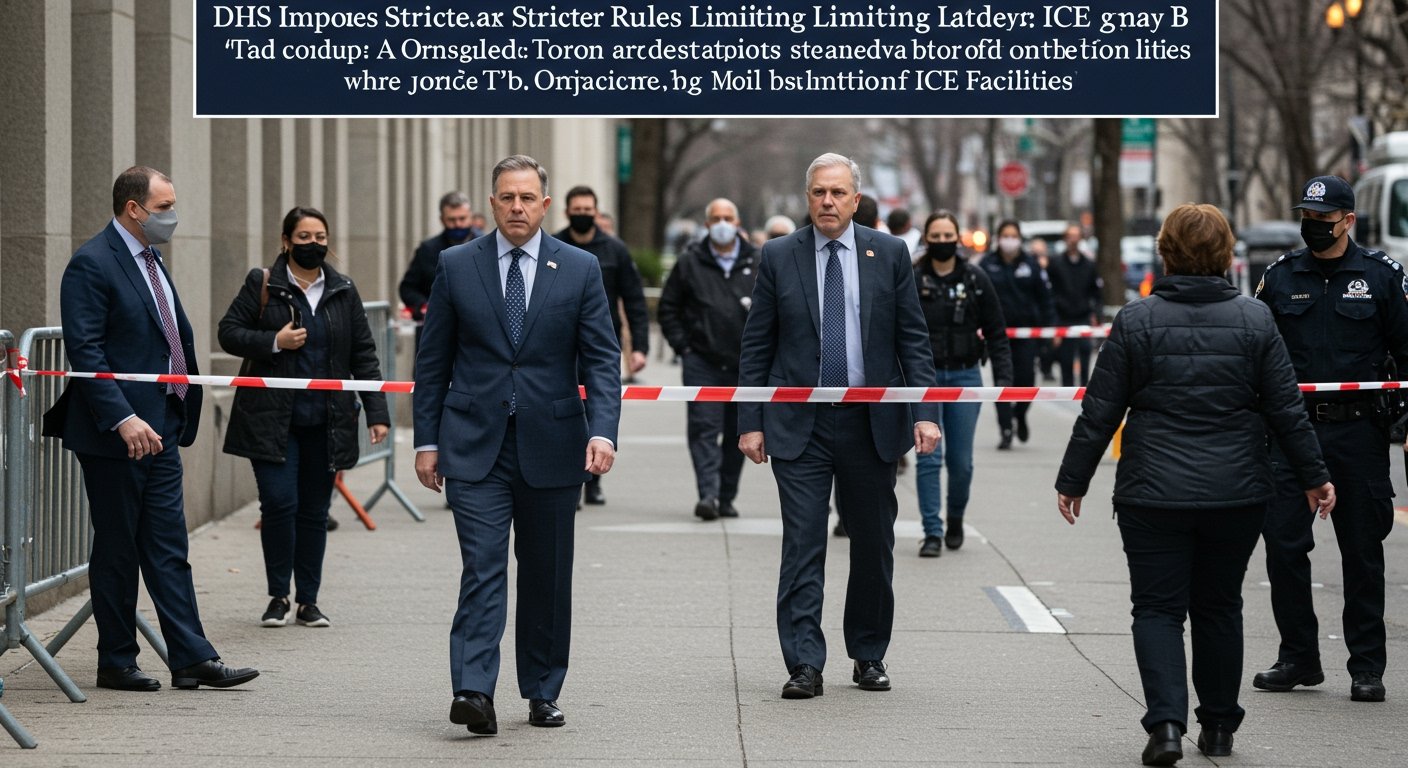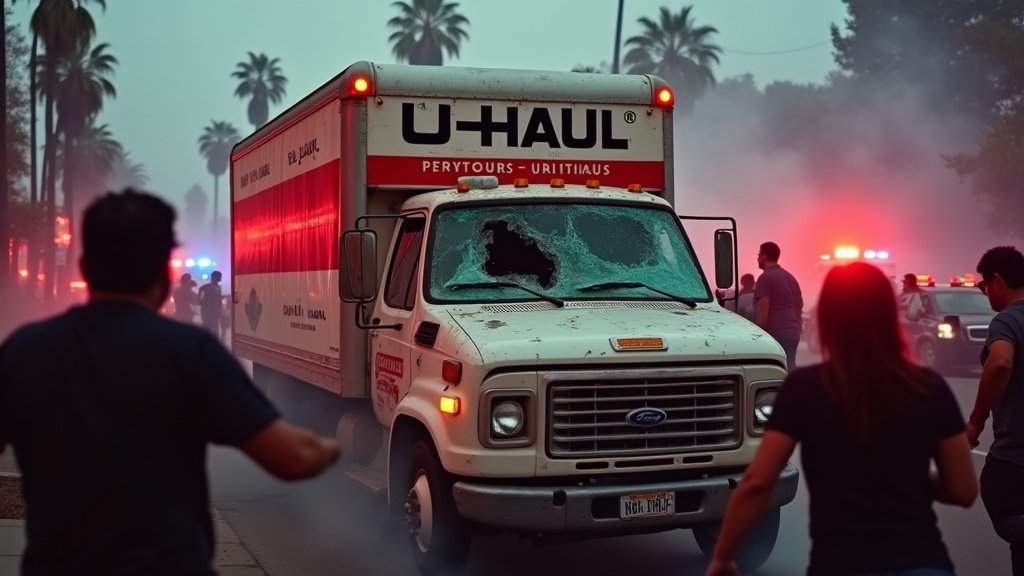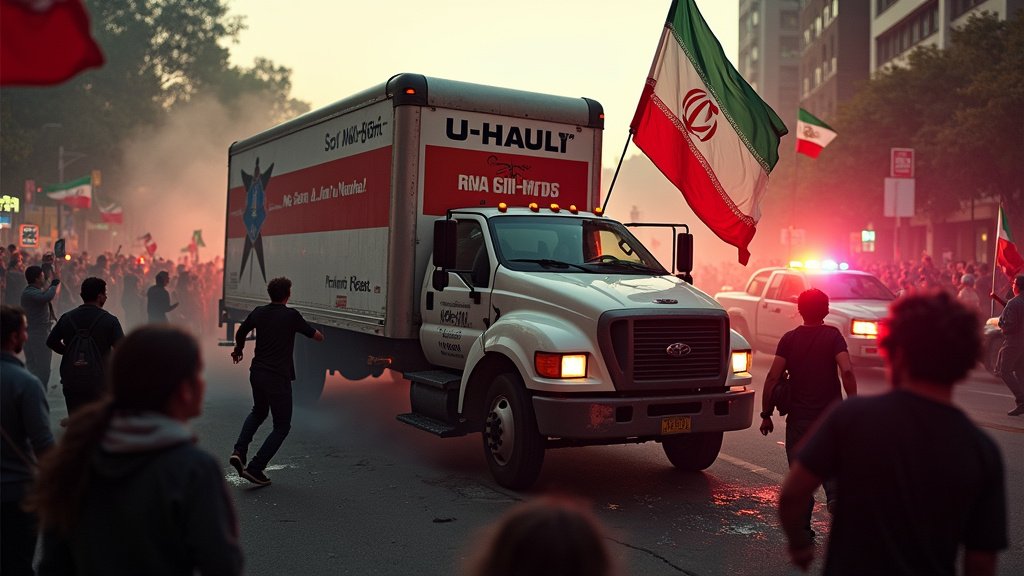Washington, D.C. – The Department of Homeland Security (DHS) has enacted significant new restrictions that will substantially curtail the ability of members of Congress to inspect immigration detention facilities operated by Immigration and Customs Enforcement (ICE). The revised regulations mandate a minimum of 72 hours’ advance notice for any congressional visit to an ICE facility.
Crucially, under these new rules, ICE retains the exclusive authority and discretion to either deny or cancel proposed congressional visits. This development marks a tightening of access for lawmakers seeking oversight of conditions within the nation’s immigration detention system.
Understanding the New Restrictions
The policy change, implemented by DHS, introduces a formal requirement for congressional members or their staff to provide ICE with no less than three full days’ notice before attempting to visit any facility where immigrants are held under ICE custody. This contrasts with previous protocols, which often allowed for less restrictive access, sometimes permitting visits with little or no prior notification, particularly in response to urgent concerns.
Beyond the advance notice stipulation, the rules explicitly grant ICE the unilateral power to refuse entry or terminate a planned visit at any time, for reasons that are not fully elaborated upon in the public description of the policy change provided in the summary. This discretionary power has raised concerns among transparency advocates and some lawmakers about the potential for critical oversight to be obstructed.
Congressional oversight visits to detention facilities are traditionally seen as a vital mechanism for ensuring accountability, monitoring conditions, and addressing potential human rights or humanitarian concerns within government operations. The ability of lawmakers to observe conditions firsthand, speak with detainees, and interact with facility staff is considered essential for informing legislative action and ensuring the proper expenditure of taxpayer funds.
Recent Incidents Highlight Impact
The practical effect of these new restrictions has been illustrated by recent incidents involving members of Congress attempting to visit ICE facilities. This week, Illinois Congressmembers Delia Ramirez and Jesús “Chuy” García were reportedly blocked from accessing an ICE facility located in Broadview. Details surrounding the specific reasons for the denial of access in this instance remain limited in the provided summary, but the timing coincides with the implementation of the new policy.
A similar incident occurred in New York, where Congressmember Jerry Nadler was reportedly denied entry to an ICE detention unit situated at 26 Federal Plaza in Manhattan. This particular unit has been the subject of scrutiny.
Advocate Concerns Regarding Manhattan Facility
According to advocates familiar with the situation at the 26 Federal Plaza unit in Manhattan, the facility is reportedly holding dozens of immigrants who were arrested during court hearings. Advocates have raised alarms about the conditions within this unit, alleging that detainees are being held in overcrowded conditions for several days while awaiting transfer to other facilities. More critically, it is alleged by advocates that many of these individuals have been compelled to sleep on the floor due to the lack of adequate sleeping accommodations.
The denial of access to lawmakers seeking to verify such reports through direct observation is precisely the type of situation that critics argue the new rules enable. Lawmakers and advocates contend that restricting access hinders independent verification of conditions and makes it more difficult to address urgent issues within detention facilities.
Implications for Oversight and Transparency
The new DHS rules governing congressional visits to ICE facilities represent a significant shift in the balance between government operations and legislative oversight. While agencies may argue that advance notice is necessary for security and operational management, the added layer of ICE’s explicit discretionary power to deny or cancel visits raises fundamental questions about transparency and accountability.
Critics argue that limiting unannounced or short-notice inspections could allow substandard conditions to persist unseen by external governmental reviewers. The ability of lawmakers to conduct timely and unfettered inspections is often posited as a deterrent against neglect or abuse within correctional and detention settings.
This development is likely to fuel further debate in Congress regarding the management and oversight of immigration detention, potentially leading to legislative efforts to restore broader access or to mandate greater transparency from DHS and ICE concerning facility conditions and inspection protocols. The incidents involving Congressmembers Ramirez, García, and Nadler serve as early indicators of the challenges lawmakers may face in carrying out their oversight responsibilities under the revised regime.





